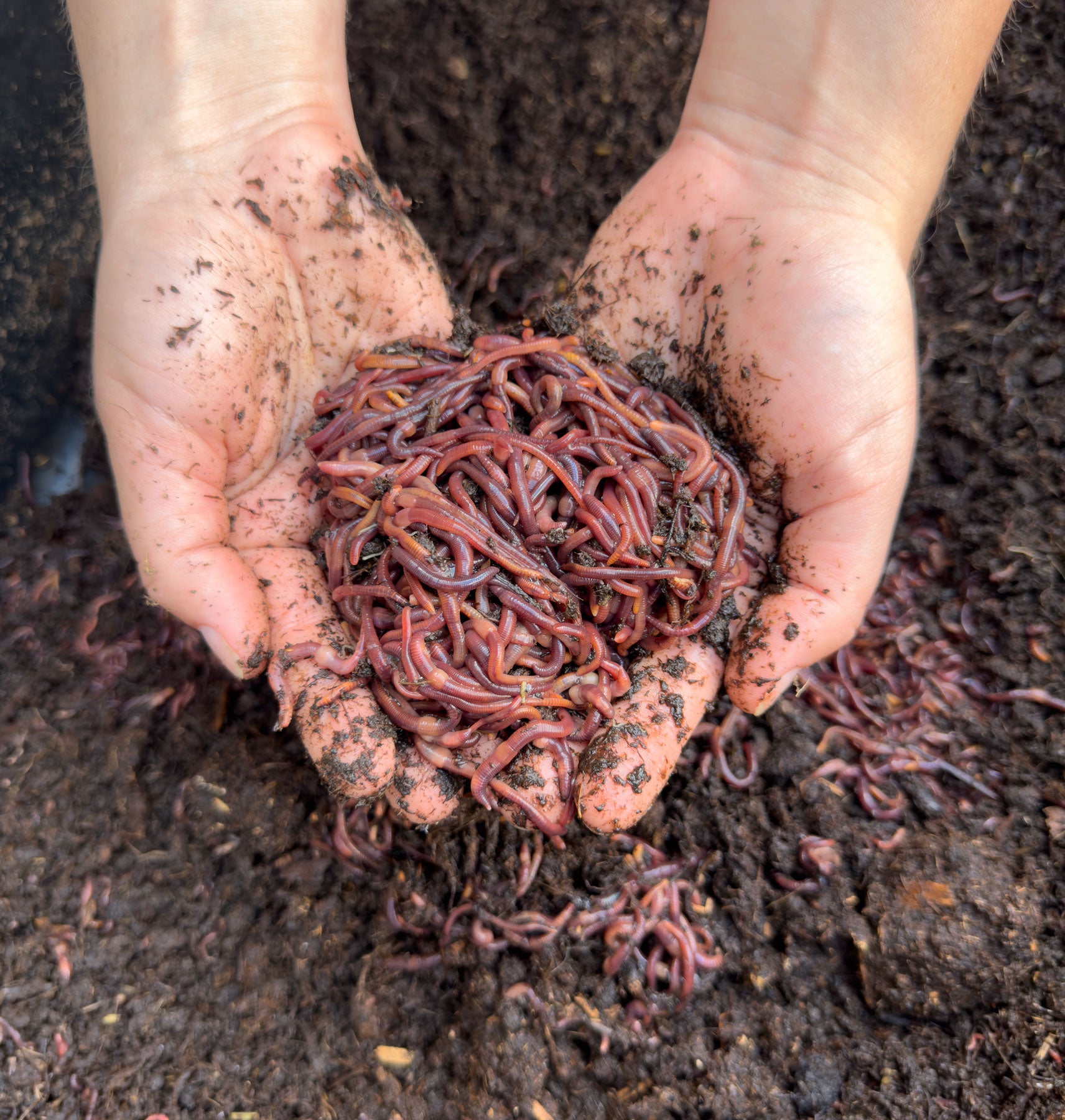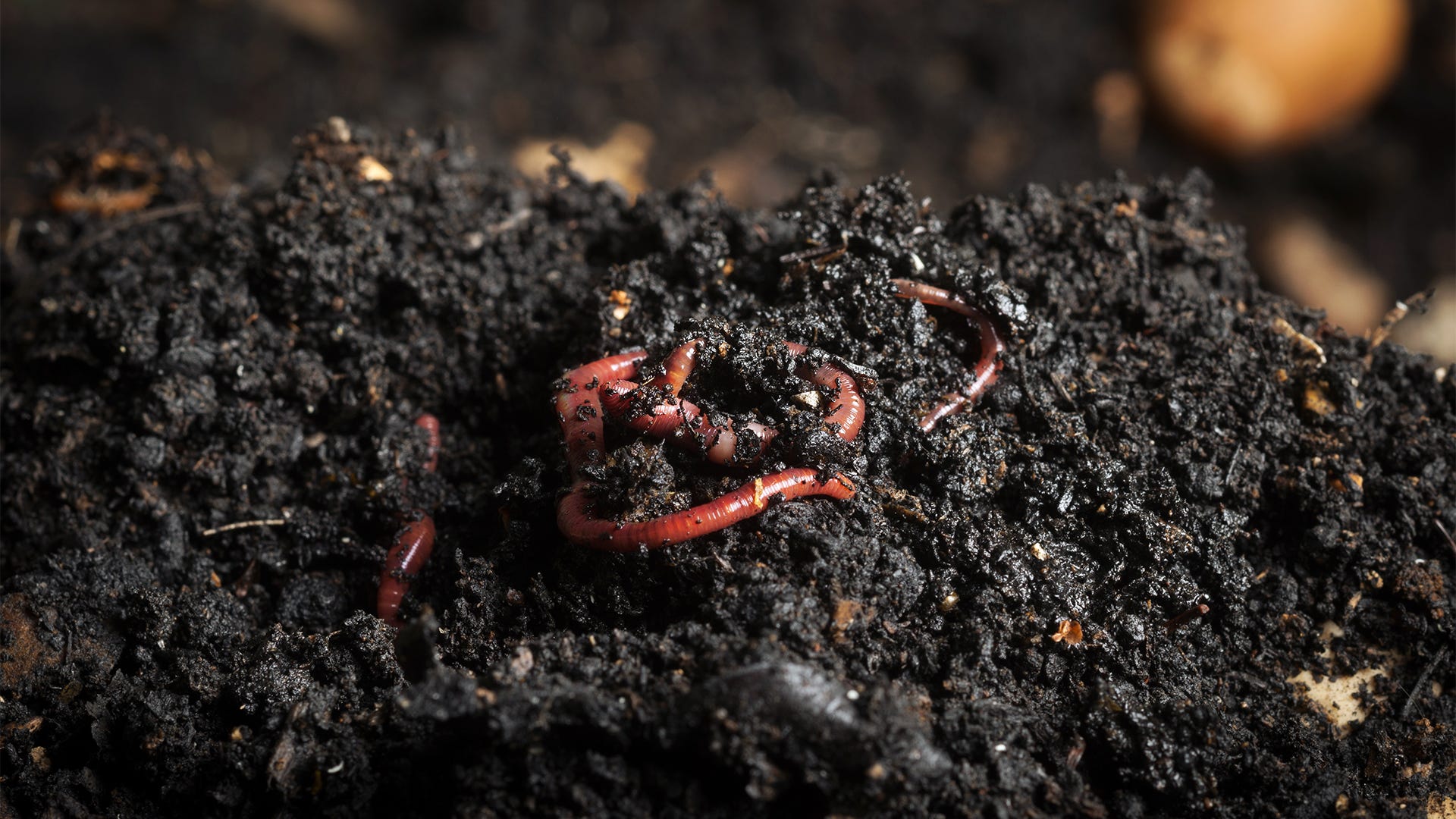Red Wiggler Worms - Efficient Decomposers for Your Compost Container
Red Wiggler Worms - Efficient Decomposers for Your Compost Container
Blog Article
Red Wiggler Worms Demystified: Unlocking the Secrets of Vermiculture for Greener Living and Nutrient-Rich Dirt
In the realm of lasting methods for enhancing soil high quality and advertising eco-conscious living, red wiggler worms play a pivotal yet commonly neglected role. Red Wiggler Worms. Comprehending the intricacies of caring for these worms, enhancing their environment, and utilizing their spreadings can lead to a greener way of life and much healthier dirt for plants to thrive.
The Function of Red Wiggler Worms
Red Wiggler worms play a vital function in composting systems by successfully breaking down natural issue into nutrient-rich spreadings. These ravenous eaters take in a variety of natural materials, such as cooking area scraps, yard waste, and paper items. As they feed, the worms' gastrointestinal procedures break down the organic issue into a fine, dark, and nutrient-dense product referred to as worm spreadings or vermicompost.
The spreadings generated by Red Wiggler worms are very helpful for dirt health and plant growth. They are abundant in essential nutrients like potassium, phosphorus, and nitrogen, which are vital for supporting healthy and balanced plant advancement. In addition, worm spreadings contain helpful microbes and enzymes that help enhance dirt framework, rise water retention, and enhance nutrient uptake by plants.
Benefits of Vermicomposting

In addition, vermicompost, the nutrient-rich end product of vermicomposting, functions as a superb organic plant food and soil conditioner. It enhances dirt structure, boosts dirt aeration, and raises soil moisture retention. These residential or commercial properties contribute to much healthier plants with more powerful root systems and far better resistance to bugs and diseases. Vermicompost likewise improves the soil with crucial nutrients like potassium, phosphorus, and nitrogen, promoting plant development and total soil fertility.
Furthermore, vermicomposting assistances sustainable horticulture techniques by offering a all-natural and chemical-free option to artificial plant foods. Red Wiggler Worms. This eco pleasant method not only enhances the dirt yet additionally aids reduce reliance on damaging chemicals, promoting a greener and a lot more lasting method of horticulture
Establishing Up a Worm Container
When developing a worm container for vermicomposting, correct configuration is vital to ensure the success of the composting process. The very first step in establishing a worm container is selecting a suitable container. This can be a plastic bin or wooden box that supplies adequate room for the worms to move and has correct water drainage holes to protect against waterlogging. Next, a bed linens product such as shredded newspaper, cardboard, or coconut coir need to be included to the bin. This bed linen supplies a comfy atmosphere for the worms and aids keep dampness levels.
After adding the bed linen, introduce the red wiggler worms to the bin. It is recommended to begin with a little number of worms and progressively increase as they increase. The worms ought to after that be supplied with food scraps such as fruit and veggie peels, coffee grounds, and eggshells. It is necessary to avoid including meat, dairy products, oily, or salty foods to stop bring in insects and creating undesirable smells.
Routinely keep track of the dampness degrees and temperature level in the worm bin to make sure optimum problems for the worms. With appropriate configuration and maintenance, the worm container will effectively convert organic waste right into nutrient-rich garden compost for your plants and garden.
Harvesting Worm Spreadings
To efficiently accumulate nutrient-rich worm castings from your vermicomposting system, an organized harvesting method is crucial. There are a few key steps to follow to guarantee a successful procedure when it comes time to collect the worm spreadings. To start with, stop adding fresh food scraps away of the worm bin for a number of weeks before harvesting. This motivates the worms to migrate sideways with fresh bedding and food, making it less complicated to scoop out the castings from the opposite.

Troubleshooting Common Issues
Recognizing and dealing with common challenges that might occur during the vermicomposting process is essential for maintaining a healthy and productive worm bin. Adding excess food scraps can lead to an accumulation of wetness and level of acidity in the worm container, possibly hurting the worms. One more concern is unpleasant smells emanating from the worm container.
Furthermore, if the worm populace is declining or the worms show up undesirable, maybe because of environmental stressors such as extreme temperatures or pH degrees. Checking these aspects and making needed adjustments is essential for the health of the worms. By repairing these typical problems without delay, vermicomposters can guarantee a successful and smooth vermicomposting process while maintaining a flourishing worm populace.

Conclusion
In final thought, red wiggler worms play an essential duty in vermiculture by breaking down organic matter right into nutrient-rich dirt. Establishing up a worm container is vital for successful vermiculture, and collecting worm spreadings gives beneficial compost for horticulture.
As they feed, the worms' digestive system processes break down the organic matter right into a penalty, dark, and nutrient-dense product recognized as worm castings or vermicompost.
The spreadings produced by Red Wiggler worms are extremely beneficial for soil wellness and plant growth. Adding excess food scraps can lead to a build-up of wetness my explanation and level of acidity in the worm bin, possibly harming the worms.In addition, if the worm population is decreasing or the worms show up unhealthy, it could be due to ecological stressors such as extreme temperatures or pH levels. Establishing up a worm container is necessary for successful vermiculture, and harvesting worm spreadings provides valuable compost for gardening.
Report this page